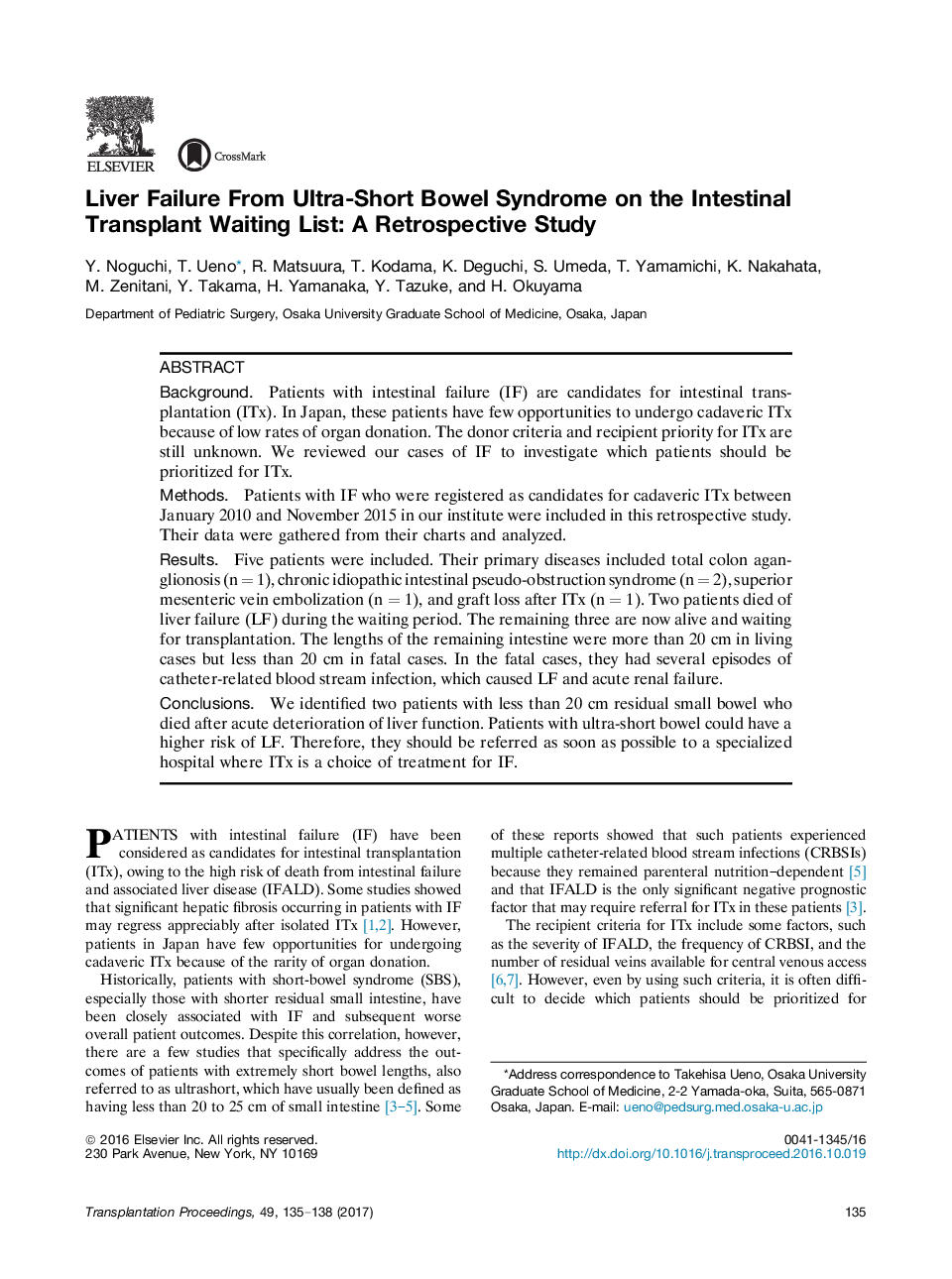| Article ID | Journal | Published Year | Pages | File Type |
|---|---|---|---|---|
| 5729304 | Transplantation Proceedings | 2017 | 4 Pages |
BackgroundPatients with intestinal failure (IF) are candidates for intestinal transplantation (ITx). In Japan, these patients have few opportunities to undergo cadaveric ITx because of low rates of organ donation. The donor criteria and recipient priority for ITx are still unknown. We reviewed our cases of IF to investigate which patients should be prioritized for ITx.MethodsPatients with IF who were registered as candidates for cadaveric ITx between January 2010 and November 2015 in our institute were included in this retrospective study. Their data were gathered from their charts and analyzed.ResultsFive patients were included. Their primary diseases included total colon aganglionosis (n = 1), chronic idiopathic intestinal pseudo-obstruction syndrome (n = 2), superior mesenteric vein embolization (n = 1), and graft loss after ITx (n = 1). Two patients died of liver failure (LF) during the waiting period. The remaining three are now alive and waiting for transplantation. The lengths of the remaining intestine were more than 20 cm in living cases but less than 20 cm in fatal cases. In the fatal cases, they had several episodes of catheter-related blood stream infection, which caused LF and acute renal failure.ConclusionsWe identified two patients with less than 20 cm residual small bowel who died after acute deterioration of liver function. Patients with ultra-short bowel could have a higher risk of LF. Therefore, they should be referred as soon as possible to a specialized hospital where ITx is a choice of treatment for IF.
